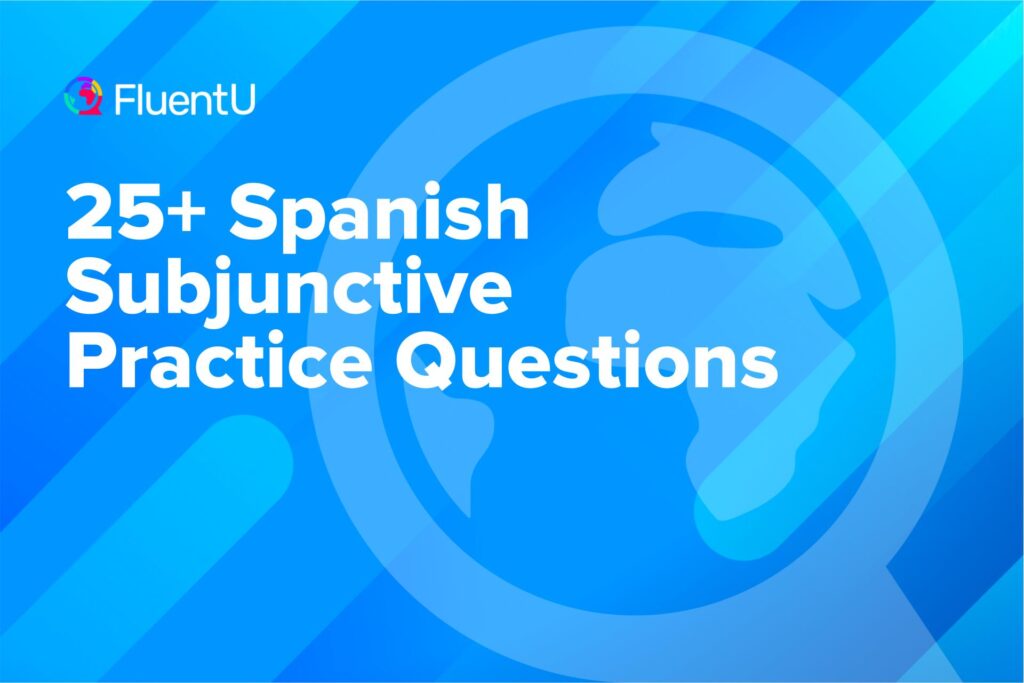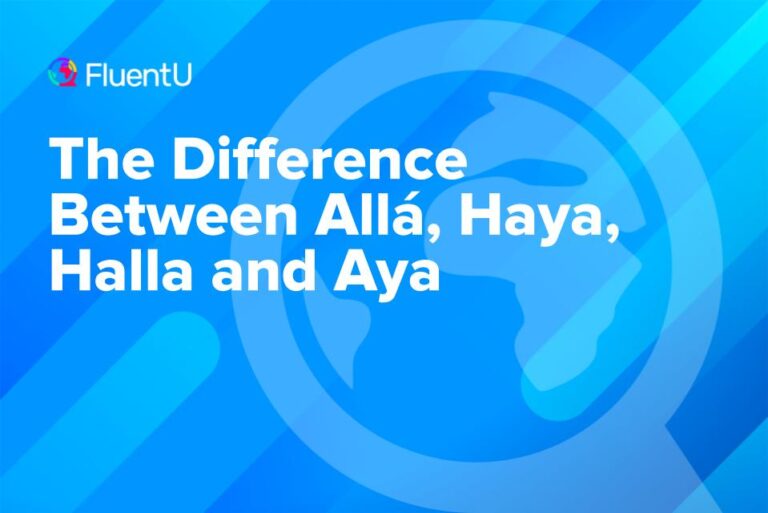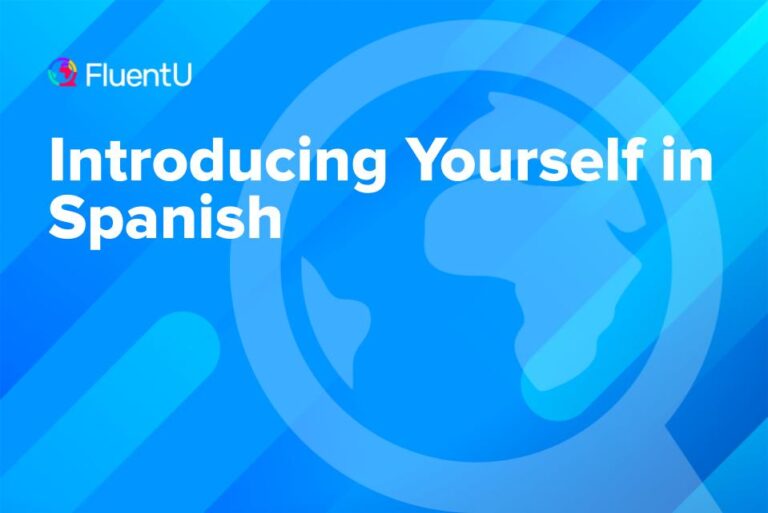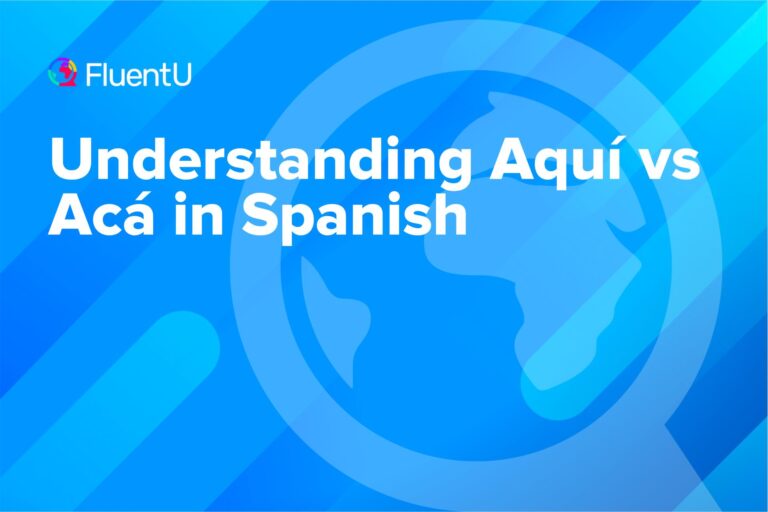25+ Spanish Subjunctive Practice Questions

The subjunctive feels like a game with rules you can’t quite grasp. This is because, unlike most of the things you’ve learned about Spanish, it doesn’t really seem to have an English equivalent.
Even if you memorize how to conjugate the subjunctive, knowing exactly when and how to use those conjugations can feel complicated.
Below we’ll explore all the tenses in the subjunctive mood, including their conjugations, rules, usages and more. Plus, solidify your new knowledge to memory with subjunctive practice quizzes containing over 25 questions.
Download: This blog post is available as a convenient and portable PDF that you can take anywhere. Click here to get a copy. (Download)
Spanish Present Subjunctive
Example: I hope that we win the war
One of the most important distinctions between the present subjunctive and present indicative (a non-subjunctive conjugation) is the use of the word que (that, which).
Using que in a sentence implies a change of subject from the first to the second clause, which is most often where our uncertainty comes from.
For example, a soldier in battle may say:
Espero ganar la guerra.
(I hope to win the war).
In this case, there is no uncertainty with no change of subject. There is no uncertainty that this is what the soldier wants—therefore, “I hope” is left as indicative.
But what if the soldier wants to express hope for the rest of the army? When the speaker introduces que, uncertainty is brought into the sentence.
While the desire is true, the individual soldier has no control over whether or not the army can win, and the verb is therefore put into the subjunctive:
Espero que ganemos la guerra.
(I hope that we win the war.)
Heads up: I’m sticking with the battle example for the rest of this post so you can clearly see the differences!
Present Subjunctive Practice Exercise
Translate the following sentences and decide whether to use the present subjunctive. The correct answers are listed below.
1. I don’t doubt that he will have fun.
2. I hope that she visits me this weekend.
3. I don’t know that they will want to come to my party.
4. It’s impossible to eat this much food.
5. I doubt that we have enough time.
Answer Key
Indicative: The speaker expresses certainty about the outcome.
2. Espero que ella me visite este fin de semana.
Subjunctive: Uncertainty exists about whether she will visit or not.
3. No sé que quieran venir a mi fiesta.
Subjunctive: Uncertainty exists about whether or not they will want to come.
4. No es posible comer tanta comida.
Indicative: We know for certain it’s not possible.
5. Dudo que tengamos tiempo suficiente.
Subjunctive: There is doubt as to whether or not there is enough time.
Spanish Present Perfect Subjunctive
Example: I hope that we have won the war
The present perfect subjunctive indicates something that would have occurred in the recent past. This involves doubting whether or not something actually occurred.
The auxiliary verb haber (to have done) will always be the verb in the subjunctive form. Just like it’s in the indicative when used in the present perfect tense.
This tense is used when an event has already occurred, but you are unaware of its results.
For example, you may be discussing your roommate’s lack of cleanliness. In the present perfect subjunctive, you would say:
Dudo que haya limpiado la casa.
(I doubt that he has cleaned the house.)
You don’t know the results for sure, but you have assumed what has or hasn’t already occurred in the past.
Let’s think about war again:
Espero que hayamos ganado la guerra.
(I hope that we have won the war.)
This suggests that the war is recently over, but the speaker does not yet know how it ended.
Present Perfect Subjunctive Practice Exercise
Translate the following sentences and decide whether to use the present perfect subjunctive. The correct answers are below.
1. It’s doubtful that you have finished all of your homework.
2. I hope to have a good time this weekend.
3. I have not been to the dentist in a while.
4. It’s good that they have gotten married.
5. It’s unlikely that they have visited Mexico.
Answer Key
1. Es dudoso que hayas terminado toda tu tarea.
Subjunctive: There is doubt about whether or not the homework has been finished.
2. Espero pasarlo bien este fin de semana.
Indicative: The desire is true and in the present tense; there is no uncertainty.
3. No he ido al dentista en mucho tiempo.
Indicative: There isn’t any doubt; it’s just a statement of fact.
4. Es bueno que se hayan casado.
Subjunctive: The statement expresses subjectivity about what others have done.
5. Es poco probable que hayan visitado a Mexico.
Subjunctive: There is uncertainty about whether they have been to Mexico or not.
Spanish Imperfect Subjunctive
Example: I hoped that we might win the war
With the imperfect subjunctive, we deal with something completely new: Both the doubt and the event it references have already happened.
It indicates that uncertainty was experienced in the past. And whether or not we now know the outcome doesn’t even matter.
For example, this phrase expresses a time in the past when there was uncertainty, as the speaker did not know whether or not they would end up married:
Cuando nos conocimos, ya esperaba que nos casáramos.
(When we first met, I already hoped we’d get married.)
Because the hope was expressed in the past tense, whether or not they actually got married is irrelevant.
Going back to our war scenario, here’s the imperfect subjunctive in action:
Esperaba que ganáramos la guerra.
(I hoped that we might win the war.)
This would suggest that the war is either over or it’s not looking too great for the heroes.
The wishing for a victory was done in the past, which means we probably know the war’s outcome by now. This tense is often accompanied with an explanation for why our hope is now past.
For example:
Antes de que atacaron el campamento, esperaba que ganáramos la guerra.
(Before they attacked our camp, I hoped we might win the war.)
This phrase explains why even though our speaker is no longer hopeful, they were at one time in the past.
Imperfect Subjunctive Practice Exercise
Translate the following sentences and decide whether to use the imperfect subjunctive. The correct answers are below.
1. I hoped that she would live with me.
2. It was unlikely that you would win the competition.
3. I wanted to be an astronaut when I was young.
4. I didn’t believe that she would write her own novel.
5. I didn’t doubt that she could cook a perfect dinner.
Answer Key
1. Esperaba que ella viviera conmigo.
Subjunctive: There was once doubt regarding whether or not she would move in.
2. Era improbable que ganaras la competición.
Subjunctive: There was uncertainty in the past about whether or not you would win.
3. Quería ser astronauta cuando era joven.
Indicative: There is no uncertainty about the speaker’s desire to be an astronaut.
4. No creía que escribiera su propia novela.
Subjunctive: There was doubt in the past about her ability to write a novel.
5. No dudé que podría cocinar una cena perfecta.
Indicative: There is no uncertainty expressed.
Spanish Pluperfect Subjunctive
Example: I hoped that we would have won the war
The pluperfect subjunctive is used when you know the outcome but wish things would have been different.
We use the auxiliary haber (to have done) again, but this time conjugated in the imperfect subjunctive tense.
For example, you might discuss your latest job interview by saying:
Ojalá que hubiera conseguido ese trabajo.
(I wish I would have gotten that job.)
There was uncertainty in the past about whether or not you would get the job, and though you now know for sure that you did not, you still wish things could have been different.
And what about war? In our scenario, here’s the pluperfect subjunctive:
Esperaba que hubiéramos ganado la guerra.
(I hoped that we would have won the war.)
Using the subjunctive conjugation of haber is also similar to saying “we might have” in English. This is also why the tense is commonly seen in conditional phrases beginning with “If…” (“If this had/hadn’t happened, we might have ___.)
Pluperfect Subjunctive Practice
Translate the following sentences and decide whether to use the pluperfect subjunctive. The correct answers are below.
1. It’s true that I lived in France for a year.
2. I thought that I might have learned to play piano.
3. I have been studying Spanish since I was born.
4. If I hadn’t met you, it’s unlikely that I would have moved to the city.
5. I wish we would have eaten less before dinner.
Answer Key
1. Es cierto que viví en Francía por un año.
Indicative: There is no uncertainty about what occurred in the past.
2. Pensé que hubiera aprendido tocar el piano.
Subjunctive: There was once doubt about whether or not I would learn piano. Now we know I did not.
3. He estado estudiando español desde que nací.
Indicative: There is no doubt about what occurred in the past.
4. Si no nos hubiéramos conocido, es improbable que yo me hubiera mudado a la ciudad.
Subjunctive: There was uncertainty in the past about whether or not I would move to the city.
5. Ojalá que hubiéramos comido menos antes de la cena.
Subjunctive: There was uncertainty in the past about how much would be eaten.
Spanish Future Subjunctive
Unlike the subjunctive, the Spanish future tense states with utmost certainty that something will occur.
But of course, some things go wrong and change even when you think you’re 100% certain about an outcome.
Just because you use the future tense doesn’t mean you have any more control over a situation than usual: It simply means you feel confident in predicting the outcome.
For example, our speaker may say:
Ganaremos la guerra.
(We will win the war.)
This is because they have just stolen all of their enemy’s weapons. While their use of the future tense doesn’t rule out a sudden ambush from occurring, they can still feel confident in its use: Things are looking pretty good for them right now.
It’s also essential to note that the Spanish future subjunctive is almost entirely obsolete, as Spanish speakers normally use the present subjunctive instead.
You’ll really only come across this tense in old literary texts.
Final Spanish Subjunctive Practice
Translate the following sentences.
Decide whether or not the phrase is in the present or future indicative, or any of the subjunctive tenses.
The correct answers are below.
1. I hope to write my own novel someday.
2. I hoped we would have arrived earlier.
3. I will feel better after sleeping.
4. I didn’t think you would know the answer.
5. I doubt he will be helpful.
6. It’s possible that they have already left.
Answer Key
1. Espero escribir mi propia novela algún día. (present indicative)
2. Esperaba que hubiéramos llegado antes. (pluperfect subjunctive)
3. Me sentiré mejor después de dormir. (future indicative)
4. No creí que supieras la respuesta. (imperfect subjunctive)
5. Dudo que sea útil. (present subjunctive)
6. Es posible que ya hayan salido. (present perfect subjunctive)
How to Practice the Spanish Subjunctive
Mastering the subjunctive is a complicated process and may take a while. Even native speakers can’t quite explain when and why they use it!
Try your best, and know that every person you speak with—from a Spanish beginner to native speaker—understands just how complicated it can be.
One of the best ways to continue your subjunctive practice is through watching Spanish movies and TV, or finding any way to listen to native speakers have a conversation.
When you notice a subjunctive conjugation used, take a moment to consider how it’s being used, and why the subjunctive was chosen over the indicative in that situation.
Watching subtitled movies and TV is even better for this.
For example, FluentU’s Spanish videos have expertly written, interactive subtitles and transcripts.
FluentU takes authentic videos—like music videos, movie trailers, news and inspiring talks—and turns them into personalized language learning lessons.
You can try FluentU for free for 2 weeks. Check out the website or download the iOS app or Android app.
P.S. If you decide to sign up now, you can take advantage of our current sale!

Seeing the words on a screen can make it easier to identify when native speakers use the subjunctive—and you’ll probably be surprised at how often that is. If you’re unsure if the verb is conjugated in the subjunctive, click on it in the subtitles to see the verb tense information.
There’s also the FluentU Spanish YouTube channel you can use. There, you can find tons of in-depth video lessons using Spanish-dubbed clips of popular TV shows and movies to teach grammar concepts like the subjunctive.
Just like any language, the subjunctive is a muscle that must be developed in the brain.
The more opportunities you have to flex and exercise the muscle, the more easily your brain will begin to make connections on its own. Eventually, you will catch yourself using it correctly without even trying!
There is certainly no uncertainty about how worthwhile it is to learn Spanish.
Even when it feels like an uphill battle, ganarás la guerra (you will win the war)!
Download: This blog post is available as a convenient and portable PDF that you can take anywhere. Click here to get a copy. (Download)
And One More Thing…
If you've made it this far that means you probably enjoy learning Spanish with engaging material and will then love FluentU.
Other sites use scripted content. FluentU uses a natural approach that helps you ease into the Spanish language and culture over time. You’ll learn Spanish as it’s actually spoken by real people.
FluentU has a wide variety of videos, as you can see here:

FluentU brings native videos within reach with interactive transcripts. You can tap on any word to look it up instantly. Every definition has examples that have been written to help you understand how the word is used. If you see an interesting word you don’t know, you can add it to a vocab list.

Review a complete interactive transcript under the Dialogue tab, and find words and phrases listed under Vocab.

Learn all the vocabulary in any video with FluentU’s robust learning engine. Swipe left or right to see more examples of the word you’re on.

The best part is that FluentU keeps track of the vocabulary that you’re learning, and gives you extra practice with difficult words. It'll even remind you when it’s time to review what you’ve learned. Every learner has a truly personalized experience, even if they’re learning with the same video.
Start using the FluentU website on your computer or tablet or, better yet, download the FluentU app from the iTunes or Google Play store. Click here to take advantage of our current sale! (Expires at the end of this month.)







